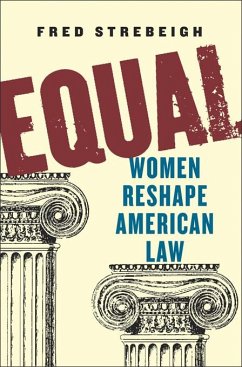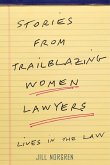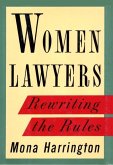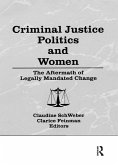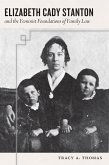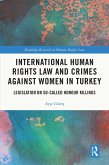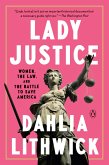The dramatic, untold story of how women battled blatant inequities in America's legal system.
As late as 1967, men outnumbered women twenty to one in American law schools. With the loss of deferments from Vietnam, reluctant law schools began admitting women to avoid plummeting enrollments. As women entered, the law resisted. Judges would not hire women. Law firms asserted a right to discriminate against women. Judges permitted discrimination by employers against pregnant women. Courts viewed sexual harassment as, one judge said, "a game played by the male superiors." Violence against women seemed to exist beyond the law's comprehension.
In this landmark book, Fred Strebeigh shows how American law advanced, far and fast. He brings together legal evidence and personal histories to portray the work of concerned women and men to advance legal rights in America. Equal combines interviews with litigators, plaintiffs, and judges, including Ruth Bader Ginsburg and Catharine MacKinnon, along with research from private archives of attorneys who took cases to the Supreme Court, to narrate battles waged against high odds and pinnacles of legal power. Equal, in the words of Professor Suzanne A. Kim of Rutgers Law School, is a book for "anyone interested in how each individual can improve our society through compassion, drive, and creativity."
As late as 1967, men outnumbered women twenty to one in American law schools. With the loss of deferments from Vietnam, reluctant law schools began admitting women to avoid plummeting enrollments. As women entered, the law resisted. Judges would not hire women. Law firms asserted a right to discriminate against women. Judges permitted discrimination by employers against pregnant women. Courts viewed sexual harassment as, one judge said, "a game played by the male superiors." Violence against women seemed to exist beyond the law's comprehension.
In this landmark book, Fred Strebeigh shows how American law advanced, far and fast. He brings together legal evidence and personal histories to portray the work of concerned women and men to advance legal rights in America. Equal combines interviews with litigators, plaintiffs, and judges, including Ruth Bader Ginsburg and Catharine MacKinnon, along with research from private archives of attorneys who took cases to the Supreme Court, to narrate battles waged against high odds and pinnacles of legal power. Equal, in the words of Professor Suzanne A. Kim of Rutgers Law School, is a book for "anyone interested in how each individual can improve our society through compassion, drive, and creativity."
Dieser Download kann aus rechtlichen Gründen nur mit Rechnungsadresse in A, D ausgeliefert werden.

